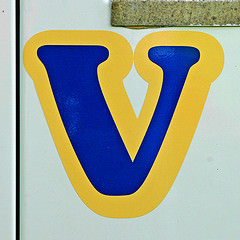
When you file for bankruptcy, all of your property – no matter what the value – vests in the bankruptcy estate.
In other words, it’s no longer yours to do with as you see fit.
The trustee is assigned, and his or her job is to make sure that all of it is liquidated and the proceeds sold to pay creditors.
In Chapter 7 bankruptcy there are some things that are exempt, or held back from the estate. The property is still theoretically part of the bankruptcy estate, but it cannot be taken or sold by the trustee. One thing of which you need to be aware at all times, however, is this – property cannot be exempted if it is not disclosed in your bankruptcy papers.
In Chapter 13 bankruptcy, the story is just about the same – everything you own vests as part of the bankruptcy estate unless it is properly exempted. In Chapter 13, however, the rationale and the outcome are slightly different than in a Chapter 7.
The value of your non-exempt property in Chapter 13 is used as part of the how much you need to pay in a Chapter 13 Plan in order to meet the “best interests of the creditors” test. Because you’re paying back all or a portion of your debts in Chapter 13, nothing – exempt or otherwise – is taken from you regarding of whether it vests in the trustee or not.
The major concern in Chapter 13 is what happens to something you obtain after the case is filed. Under 11 USC 1306(a), property of the estate includes everything “that the debtor acquires after the commencement of the case but before the case is closed, dismissed, or converted to a case under chapter 7, 11, or 12.” It also includes “earnings from services performed by the debtor after the commencement of the case but before the case is closed, dismissed, or converted to a case under chapter 7, 11, or 12.”
Under 11 USC 1327(b), however, “the confirmation of a plan vests all of the property of the estate in the debtor.”
In other words, when you file your Chapter 13 bankruptcy case then everything you own vests in the bankruptcy estate. Once the Plan is confirmed, however, it vests back with you.
For that reason, it may be important for you and your lawyer to look into the future when filing a Chapter 13 bankruptcy case. Unless you specify otherwise in the Plan, some of the property you acquire after filing but before confirmation could be at risk.
Image credit: Leo Reynolds